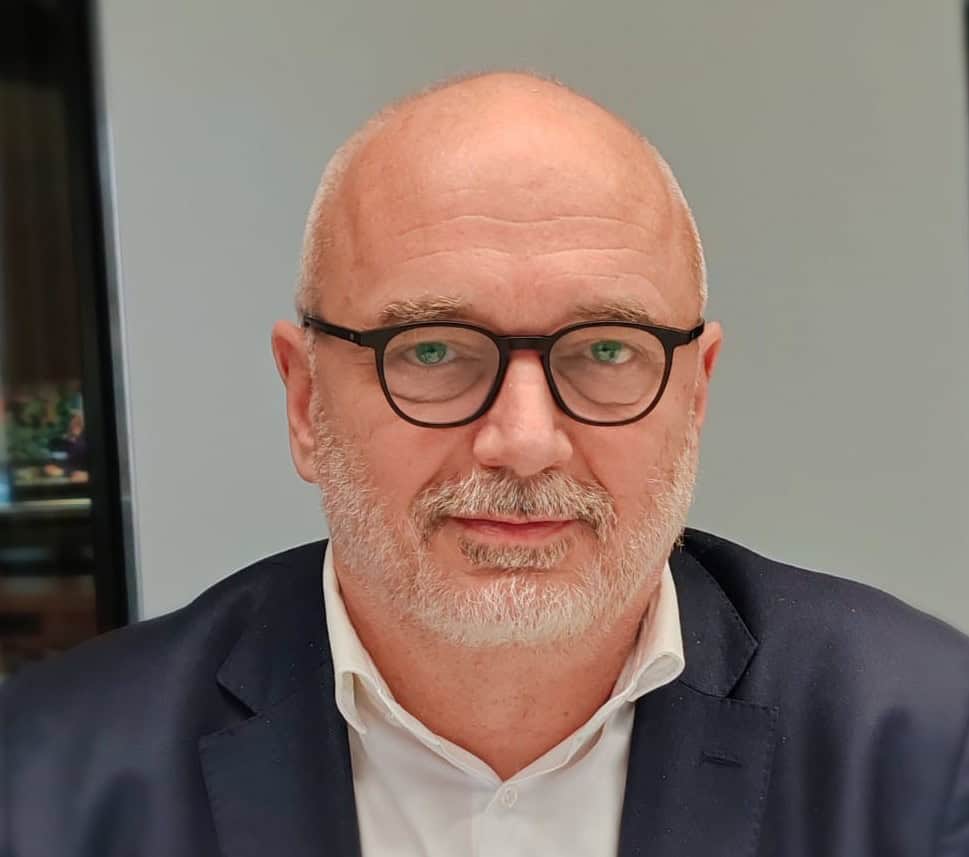Technology is evolving faster than ever. AI is reshaping entire industries, cybersecurity threats grow more sophisticated by the day, and software engineering is no longer just about coding – it’s about solving real-world problems through innovation.
That’s why IT education must go beyond code and empower students to create real-world solutions that drive change.
For too long, many universities have relied on large lecture halls, theoretical coursework, and outdated curricula that struggle to keep pace with technological developments and industry needs. Meanwhile, employers are looking for graduates who think critically, adapt quickly, work hands-on and integrate the latest technology into reshaped businesses.
The Rise of hands-on IT education: active learning on real-world challenges with expert mentorship
Gen Z grew up with digital technology. They don’t just want to hear about AI, cybersecurity, and software engineering in a lecture – they want to learn actively, create, test, and innovate with it. The most forward-thinking IT programs today focus on:
- Active learning and mentorship: Personalised learning in small classes, direct interaction with industry professionals, and collaborative problem-solving are replacing traditional, passive learning models.
- Industry partnerships: Universities that integrate real-world projects, internships, and company partnerships help students gain experience that translates directly into job opportunities.
- Agile learning environments: Rapid technological change requires adaptable curricula that evolve alongside industry advancements, rather than relying on fixed, multi-year course structures.
- Innovation hubs and labs: The best IT programs provide students with access to the newest technologies, collaborative spaces, and the freedom to experiment, fail, and innovate.
The innovation imperative in IT education
Innovation isn’t just about new technology – it’s about curiosity and social networks. The world’s biggest breakthroughs come from those who know how to challenge the status quo, think creatively, leverage insights from other disciplines and turn own ideas into reality. Yet, many traditional IT programs still focus on passive learning, where students memorize theories instead of actively tackling and solving problems.
Gen Z grew up with digital technology. They don’t just want to hear about AI, cybersecurity, and software engineering in a lecture – they want to learn actively, create, test, and innovate with it
Tomorrow’s tech leaders need more than just knowledge – they need environments where they can experiment, fail, and iterate. That’s why forward-thinking universities are integrating IT meetups, startup incubators, and transdisciplinary collaboration into their ecosystem. Students don’t just work on assignments; they tackle real-world challenges alongside industry mentors.
These shifts are essential. The coming generation of IT professionals won’t just apply technology; they’ll redefine it.
The future of IT education: where innovation meets industry
The next wave of IT education also needs to prepare students to lead in a constantly changing field. This means more interdisciplinary programs where AI, cybersecurity, and software engineering overlap. It means moving beyond tests and grades to portfolios of real-world projects. By partnering with industry leaders, educational institutions ensure a relevant curriculum, aligned with real-world needs.
Universities that embrace this hands-on, innovation-driven approach will lead the way and shape the next generation of digital leaders.
A new kind of IT university
At the Munich University of Digital Technologies (MUDT), we are building an institution that embodies this future – where small classes, hands-on industry projects, and innovation-driven learning come together to create an unparalleled educational experience. Our students won’t just graduate with a degree; they’ll graduate with experience, connections, and the ability to turn ideas into impact.
The next era of IT education is here. The question is: Are you ready for it?

About the author: Univ. Prof. Prof.h.c. Dipl.-Ing. Dietmar Wiegand is the Rector of the Munich University of Digital Technologies (MUDT), where he leads the university’s strategic initiatives in advancing digital education. With extensive experience in engineering and management of IT projects, Prof. Wiegand has a strong academic and professional background, having led numerous research and development projects and academic initiatives. His expertise in fostering innovation and sustainability is central to MUDT’s mission to prepare the next generation of digital leaders in an evolving technological landscape.
The post The future of IT education: beyond lectures and into the real world appeared first on The PIE News.


